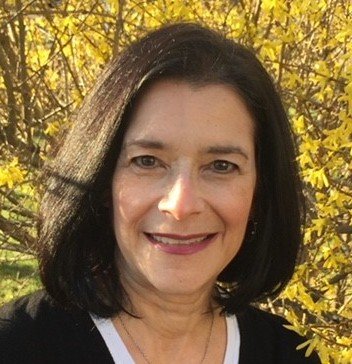West Hartford Psychologist Offers Tips for Coparenting during Social Distancing

Audio By Carbonatix

Wendy F. Habelow, Ph.D. Submitted photo
Wendy F. Habelow, Ph.D., a licensed psychologist and member of the Connecticut Collaborative Divorce Group, order insights to assist divorced parents coping with coparenting amid social distancing.
Submitted
As Americans struggle to navigate the new reality of social distancing during the COVID-19 pandemic, divorced and separated parents have the added stress of figuring out how to coparent effectively, safely and successfully – for themselves and for their children.
Licensed psychologist Wendy F. Habelow, Ph.D., with the Connecticut Collaborative Divorce Group (CCDG), a group of professionals that aims to keep divorcing couples and their children out of court using a team approach to family conflict resolution called Collaborative Divorce, shares tips to help parents successfully work together to get through the situation.
Question: What have you seen in terms of how this COVID 19 isolation is affecting families that are currently going through a divorce?
Psychologist Wendy F. Habelow, Ph.D.: I think that folks in general are feeling more stressed, with job and financial uncertainty, not being able to see loved ones, having to home school children and, of course, worrying about getting sick. In addition, the courts are closed except for uncontested divorces right now so little is moving forward. Going through divorce is one of the most stressful life events, so to be trying to divorce and possibly still living together during this time, the stress and tension must be very high.
Question: Why or how might this complicate a divorce? What are some ways this could potentially get messy for families?
WH: In addition to the uncertainties and stress of life right now, parents may be disagreeing about access to children due to real or imagined threats to children’s health. If there are no court orders, nothing to provide structure, conflict can fester and possibly erupt.
Question: What would you suggest to those who are starting to go down a messy path?
WH: Things work much better if you have two parents who are working cooperatively. Focus on the children, not on each other. Try to remember that what the children want the most is to spend time with both parents and not be around conflict. Allow the children access to both parents in as free and unfettered a manner as possible. Also remember that everyone is stressed now so try to be more patient and tolerant. Also, be mindful that whatever is happening now will be temporary, things will return to normal.
Question: What have you seen in terms of how isolation is affecting families that have already gone through a divorce and are currently struggling or successfully coparenting?
WH: I think there is no one good or correct way to get through this difficult time. Each family must do what fits their needs best. Depending on a parent’s job (healthcare worker, first responder, etc.), it may make more sense for children to remain with one parent. Other parents may find that it works well for children to go back and forth between their two homes. Some parents are able to share home school responsibilities while others are not because of work or distance. Clear, respectful communication and flexible structure are key to working out arrangements that care best for children.
Question: What tips can you offer parents to mitigate the anxiety and nervousness they may feel about the situation?
WH: Remain focused on the present and what is in your control, not on the future and what is not in your control. Don’t watch too much television or read too much, stay informed but don’t overload on information. Meditate, exercise safely, sleep, and eat regularly. Try to balance between work, play and self-care.
Question: And what tips can you offer parents so they don’t get on a negative spiral and can continue to coparent successfully through this?
WH: Take things a day at a time if necessary, be as thoughtful and as kind as possible, and focus on the needs of your children and not your feelings about your co-parent.
About CCDG: Connecticut Collaborative Divorce Group is a group of experienced divorce professionals, including divorce and family lawyers, financial and mental health professionals who have been specifically trained in the collaborative process. Each member of the group has made a commitment to the goals of collaborative practice in order to help people achieve fair and lasting settlements without using the court or even the threat of court. Additionally, each member attends regular meetings and training sessions designed to develop and enhance their Collaborative Divorce skills. For more information visit: www.ctcollabrorativedivorce.com



